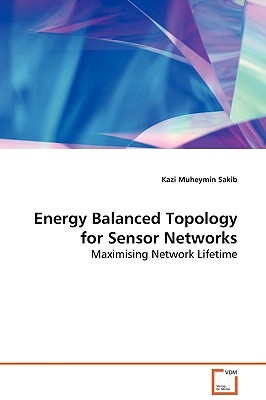
- We will send in 10–14 business days.
- Author: Kazi Muheymin Sakib
- Publisher: VDM Verlag
- ISBN-10: 3639128176
- ISBN-13: 9783639128178
- Format: 15.2 x 22.9 x 1.3 cm, softcover
- Language: English
- SAVE -10% with code: EXTRA
Reviews
Description
Recent advances in Micro-Electro-Mechanical Systems (MEMS) and low-power short-range radios have enabled rapid development of wireless sensor networks. Future sensor networks are anticipated to include hundreds or thousands of these devices in many applications, such as capturing multimedia content for surveillance, structural health monitoring, tracking of accidental chemical leaks, machine failures, earthquakes and intrusion detection. With the increase of sensor applications, a number of challenging problems related to the network protocol design have emerged - the most important ones relating to scalability, energy efficiency and lifetime maximisation. Techniques devised for sensor networks should be scalable to deal with a large number of sensors distributed in the field. Wireless sensor nodes are deployed with limited energy reserves, so the networks should operate with minimum energy overhead. In fact, the network should take into account not only individual node's energy efficiency but also consider the global picture, because surviving nodes' energy reserves in a failed network are wasted energy.
EXTRA 10 % discount with code: EXTRA
The promotion ends in 17d.13:06:18
The discount code is valid when purchasing from 10 €. Discounts do not stack.
- Author: Kazi Muheymin Sakib
- Publisher: VDM Verlag
- ISBN-10: 3639128176
- ISBN-13: 9783639128178
- Format: 15.2 x 22.9 x 1.3 cm, softcover
- Language: English English
Recent advances in Micro-Electro-Mechanical Systems (MEMS) and low-power short-range radios have enabled rapid development of wireless sensor networks. Future sensor networks are anticipated to include hundreds or thousands of these devices in many applications, such as capturing multimedia content for surveillance, structural health monitoring, tracking of accidental chemical leaks, machine failures, earthquakes and intrusion detection. With the increase of sensor applications, a number of challenging problems related to the network protocol design have emerged - the most important ones relating to scalability, energy efficiency and lifetime maximisation. Techniques devised for sensor networks should be scalable to deal with a large number of sensors distributed in the field. Wireless sensor nodes are deployed with limited energy reserves, so the networks should operate with minimum energy overhead. In fact, the network should take into account not only individual node's energy efficiency but also consider the global picture, because surviving nodes' energy reserves in a failed network are wasted energy.


Reviews